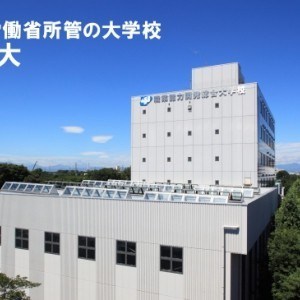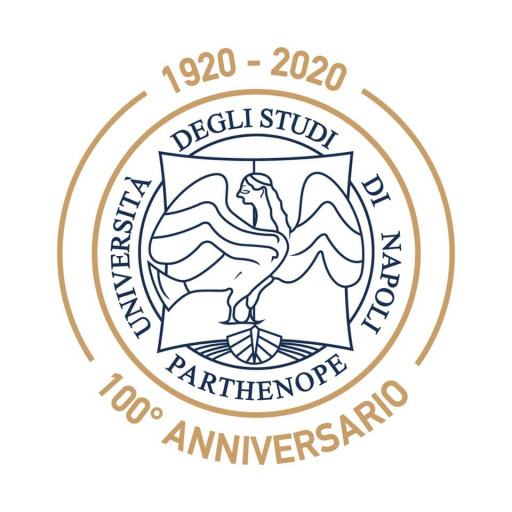Photos of university / #university_of_tsukuba
The Bachelor of Science in Computer Science at the University of Tsukuba offers a comprehensive and rigorous curriculum designed to equip students with fundamental knowledge and practical skills in the field of computing. This program emphasizes both theoretical foundations and real-world applications, preparing graduates to excel in various sectors of the technology industry, academia, and research. Students will engage with core subjects such as programming, algorithms, data structures, computer systems, and software engineering, while also exploring advanced areas including artificial intelligence, machine learning, data analysis, computer graphics, network security, and human-computer interaction. The program fosters critical thinking, problem-solving abilities, and innovative design through project-based learning and collaborative coursework. Additionally, students have opportunities to participate in research projects, internships, and international exchanges, enhancing their practical experience and global perspective. Faculty members are distinguished researchers and educators committed to nurturing talent and advancing knowledge in computer science. The curriculum is regularly updated to incorporate emerging technologies and industry trends, ensuring graduates are well-prepared for the evolving digital landscape. Graduates of the program will possess strong analytical skills, technical expertise, and the ability to develop innovative solutions to complex problems, making them highly competitive in the job market or well-prepared for further academic pursuits. The University of Tsukuba’s Computer Science program aims to cultivate talented individuals who can contribute to technological innovation and societal development through their expertise and creativity.
- A total of at least 30 credits must be earned, including 12 mandatory credits from the three Common Courses and at least 18 credits from the Elective Courses. Courses held within the Graduate School (including Campus-wide Courses for Graduate Students) may all be deemed Elective Courses, with no special restrictions applied.
- Up to 10 credits earned for courses completed in other graduate schools (including Campus-wide Courses for Graduate Students) may be included among the earned credits required for Course completion, subject to approval in advance by both the faculty advisor and the Chair of the Department.
- The requirements for Course completion are the earning of at least 30 credits and successful completion of both the master's thesis and the final examination.
Common Courses
|
Seminar in Computer Science |
2 |
|
Research in Computer Science I |
4 |
|
Research in Computer Science II |
6 |
Elective Courses
|
Course Name |
Credit |
|
Advanced Course |
2 |
|
Special Lecture |
2 |
|
Basic Computational Biology |
2 |
|
Programming Environment |
2 |
|
Data Engineering I |
2 |
|
Advanced Course |
2 |
|
Introduction to Computational Neuroscience for Engineers |
1 |
|
Experiment Design in Computer Sciences |
2 |
|
Statistical Analysis |
2 |
|
Topics in Computational Science I |
1 |
|
Topics in Computational Science II |
1 |
|
Topics in Computational Science III |
1 |
Campus-wide Courses for Graduate Students
|
Computational Science Literacy |
1 |
|
High Performance Parallel |
1 |
- The entrance examination involves a written test and an oral interview, which will be conducted at our campus.
- Entrance fees are 282,000 Japanese Yen (non-refundable).
- Supervisor of Your Choice / Exam Subject
- TOEIC Official Score Certificate or TOEFL Examinee (Test Taker) Score Report which is sent to the TOEFL examinee from ETS by postal mail
- Research Plan
- Educational Background
- Examination Fees
- (Expected) Graduation Certificate*
- Degree Certificate*
- Academic Transcript*
- Copy of “Application Completed” Page of Examination Fee Payment by Credit Card
- Receipt Portion (Certificate of Payment) of Examination Fee Statement
- Letter of Approval for Entrance Exam (Form of Your Selection)
- Certificate of Government-Sponsored (Japanese Government Monbukagakusho Scholarship) Foreign Student
The University of Tsukuba offers various financing options to support students enrolled in the Computer Science program. These include scholarships, tuition exemptions, and financial aid schemes designed to assist both domestic and international students. Scholarships are available through university-specific programs, government grants, and private organizations, aimed at recognizing academic excellence and providing economic support. The University of Tsukuba’s scholarship programs often target outstanding international students to promote diversity and inclusion within the campus community. In addition to scholarships, students may apply for tuition exemption programs, which can significantly reduce educational costs for qualifying students experiencing financial hardship.
The university also participates in governmental financial support schemes such as the Japanese Government (MEXT) Scholarships, which provide full or partial coverage of tuition fees and living expenses for international students studying in Japan. These are highly competitive and typically require students to demonstrate excellent academic records and a strong motivation to study in Japan. Furthermore, students are encouraged to seek external funding sources, including private foundations, corporate sponsorships, and bilateral exchange programs that can provide additional financial resources to support their studies.
The university’s financial aid office provides guidance on application processes, eligibility criteria, and deadlines for various funding opportunities. Students are advised to review scholarship criteria carefully and submit complete applications to maximize their chances of receiving financial aid. Additionally, the university promotes part-time employment opportunities on campus, which can help students to offset living expenses while pursuing their degree.
Overall, the University of Tsukuba is committed to making higher education accessible by offering diverse financing options for students enrolled in the Computer Science program. These financial support mechanisms aim to reduce economic barriers and enable students to focus on their academic and research pursuits, fostering an environment of academic excellence and innovation.
The Bachelor of Science in Computer Science at the University of Tsukuba offers a comprehensive undergraduate education designed to equip students with fundamental and advanced knowledge in computing. The program emphasizes both theoretical understanding and practical skills, preparing graduates for diverse careers in technology, research, and academia. Students will engage with core topics such as programming, algorithms, data structures, computer architecture, software engineering, and systems design. In addition to technical expertise, the program fosters critical thinking, problem-solving, and innovation, encouraging students to develop creative solutions to complex challenges in computing.
The curriculum includes coursework in mathematics, logic, and information sciences, providing a solid foundation for understanding computational principles. Students also have opportunities to participate in research projects and internships, gaining real-world experience and networking within the tech industry. The program promotes an interdisciplinary approach by integrating knowledge from fields like artificial intelligence, machine learning, human-computer interaction, and computer graphics. The university’s research facilities and collaborations with industry partners enable students to work on cutting-edge projects and contribute to technological advancements.
The faculty comprises experienced researchers and educators committed to providing high-quality instruction and mentorship. The program's structure allows students to tailor their education to align with specific career interests, whether in software development, system administration, data analysis, or emerging fields such as quantum computing and cybersecurity. Graduates of the program typically pursue careers in IT companies, research institutions, government agencies, or continue their studies through graduate programs. The program supports students in developing both technical proficiency and soft skills like communication, teamwork, and adaptability, essential for success in the rapidly evolving tech landscape.
Overall, the Computer Science undergraduate program at the University of Tsukuba offers a rigorous, enriching educational experience designed to prepare students to contribute meaningfully to the field of computing and to society at large. The university’s emphasis on innovation and international collaboration provides students with a global perspective, ensuring they are well-equipped to meet the demands of the modern technological world.








